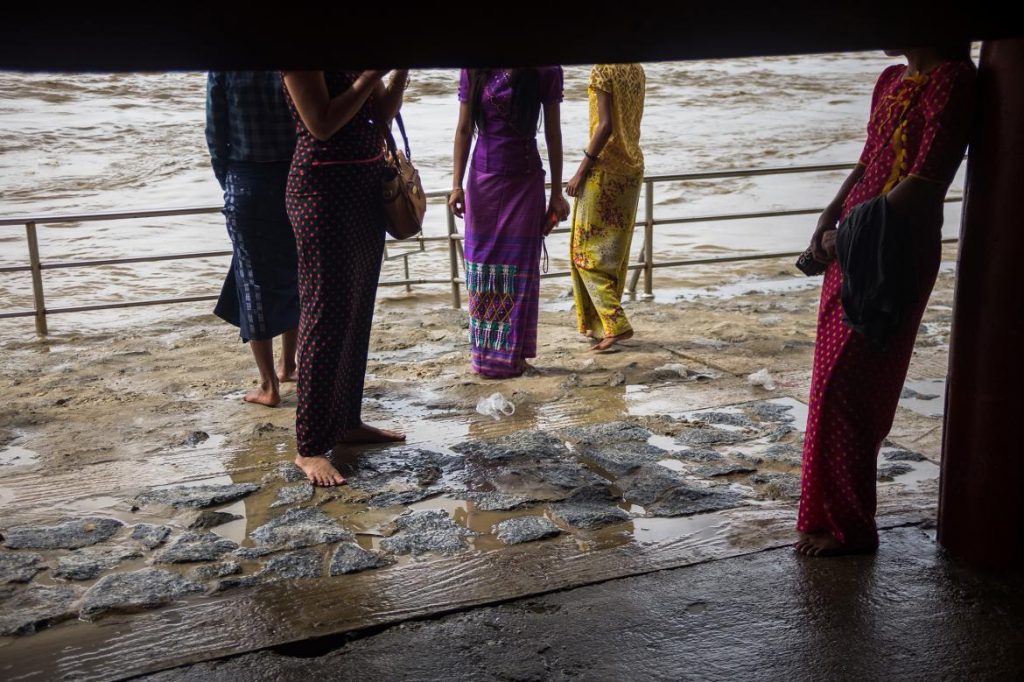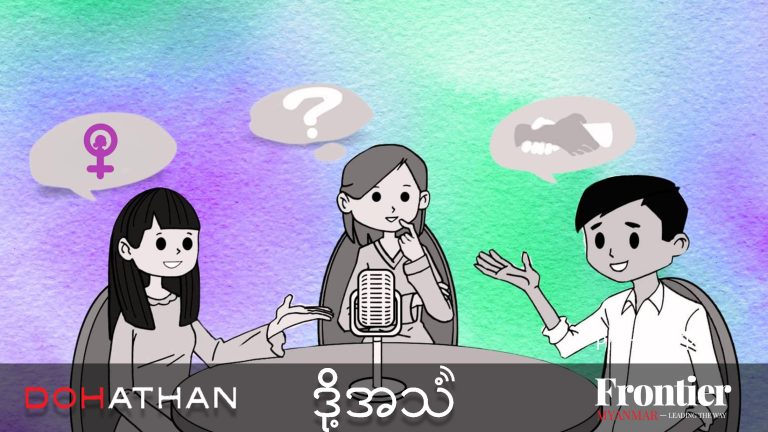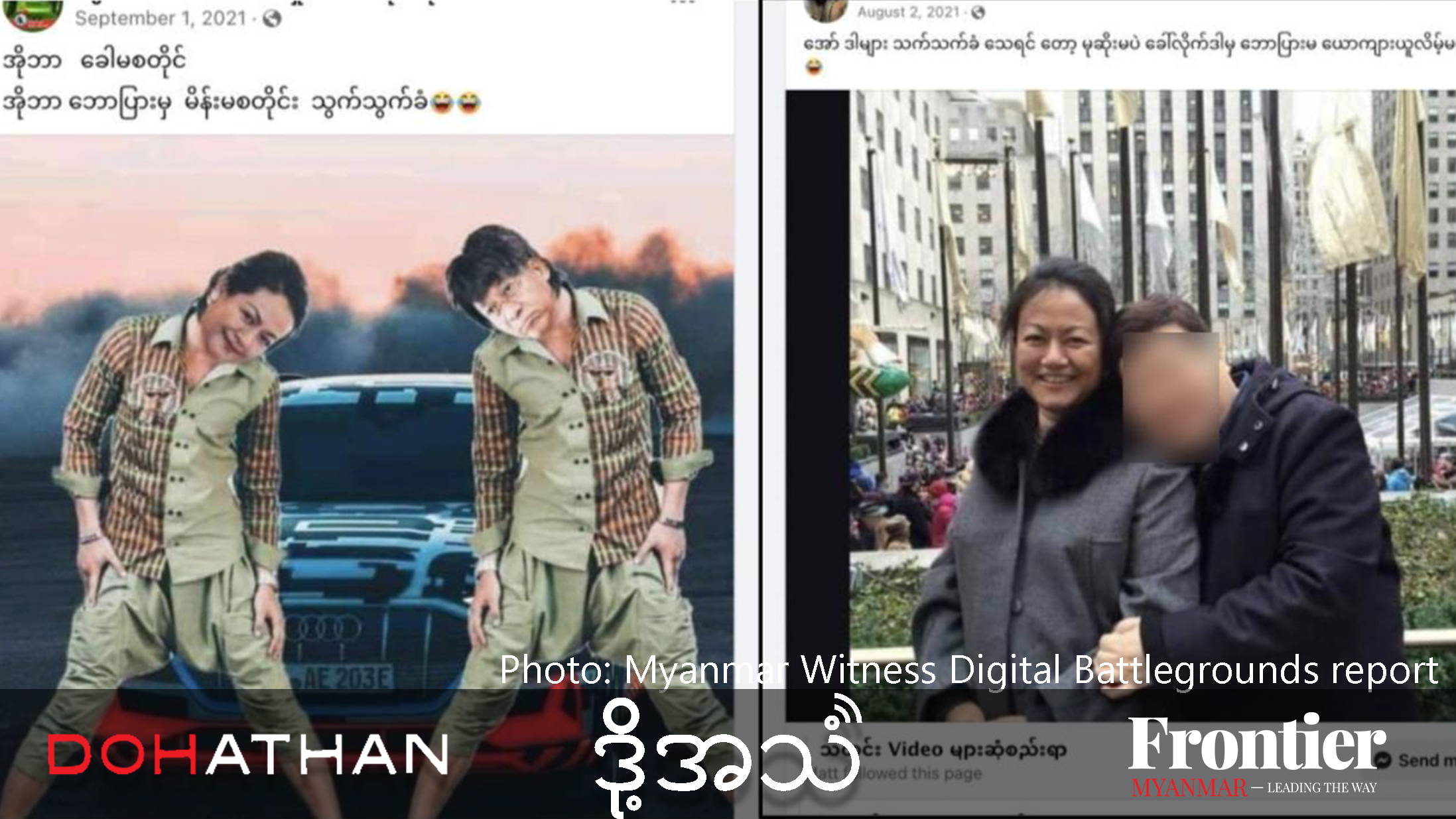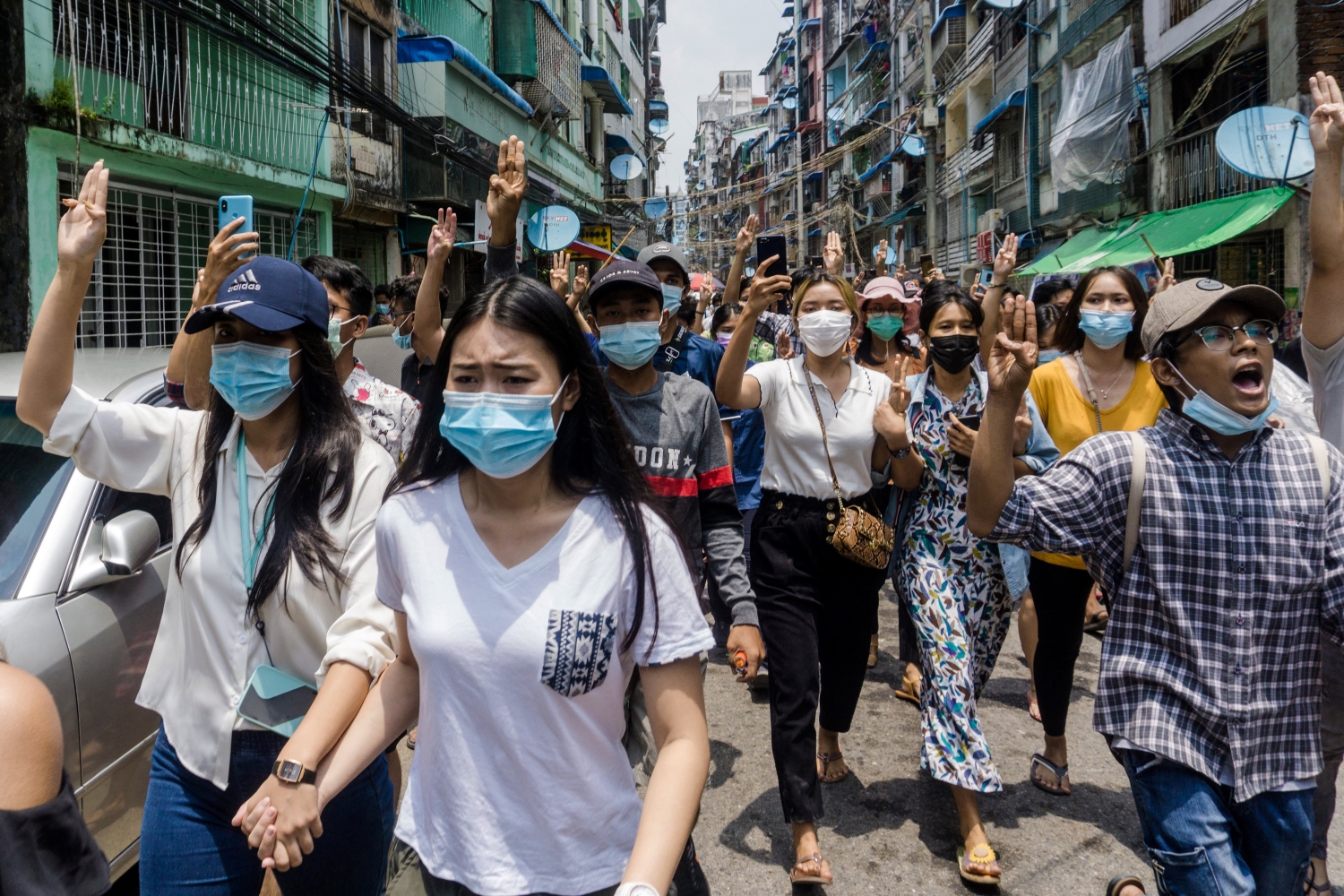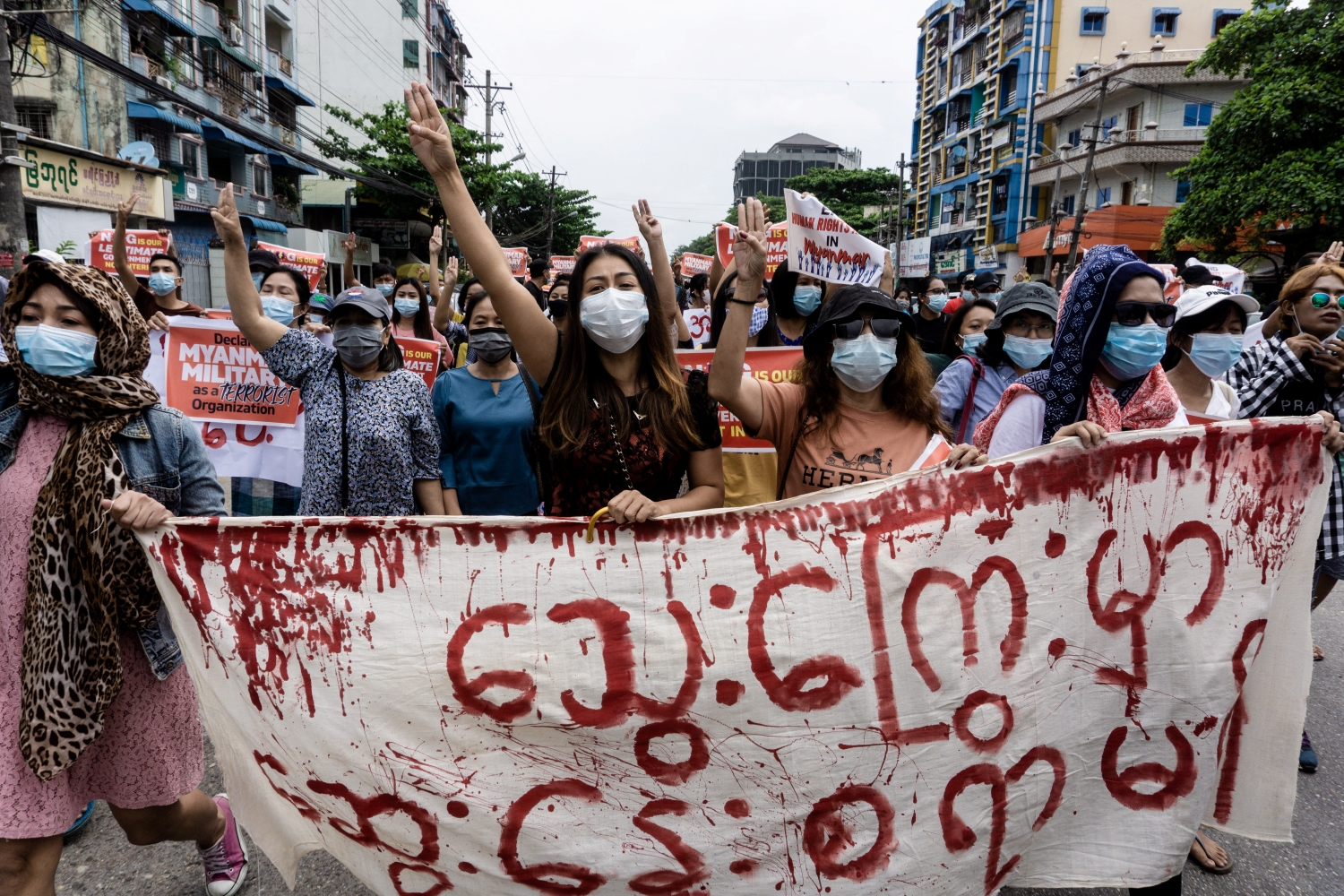Beneficiaries of a $48 million USAID grant to strengthen local communities in southeastern Myanmar include a women’s group that campaigns against gender-based violence.
By HEIN KO SOE | FRONTIER
AN EXAMPLE of gender discrimination in Myanmar is a tendency to blame rape cases on the victim. It’s reflected in the saying letkhote hna phet tee hma myi te, which translates as “it takes two hands to clap”.
Gender discrimination is particularly rampant where the sexual or physical abuse of women and justice collides, and it is an issue that is attracting increasing attention in Kayah State, the least populous of the states and regions with 286,627 people, and one of the least developed.
It is the traditional justice dispensed by village leaders or respected elders in cases involving rape, domestic violence or other crimes that angers women’s rights activists in Kayah. They say traditional justice often results in the woman victim being penalised.
“Most of the [sentences given] are the result of rich people exerting influence on judges; women are losing their rights in Kayah State,” said Naw Pi Cal, 30, who lives in the state capital, Loikaw, and is a member of a local organisation that she did not want to name.
Support more independent journalism like this. Sign up to be a Frontier member.
Pi Cal said it can be difficult for women who are victims of sexual abuse or domestic violence to remain in their communities after a case has been finalised because of discrimination.
The Karenni National Women’s Organization is playing a leading role in advancing women’s rights in Kayah and in the border refugee camps in neighbouring Thailand, where it was formed in 1993. The organisation, which advocates for “equal rights, empowerment, protection, livelihood, and a peaceful society for women and girls” in Kayah and in the refugee camps, has been operating in the state since 2014 and has a presence in each of its seven townships.
The KNWO says it handles about 50 cases of rape, child rape, domestic violence and sexual harassment every year in Kayah State.
KNWO has operated a safe house for women survivors of domestic abuse in Loikaw since 2014 and is planning to open another in Bawlakhe soon, with funding support from Pact, a Washington-based INGO that has operated in Myanmar since 1997 and focuses on communities affected by poverty and marginalisation.
“We have to help our women because of the very difficult situation they face due to discrimination and other abuses from men,” said Daw Mee Mee, the KNWO’s general secretary.
In February, the United States Agency for International Development announced that it was providing US$48 million (about K64.2 billion) for a five-year project in southeastern Myanmar, of which Kayah will be an initial beneficiary.
The Advancing Community Empowerment in Southeastern Myanmar project is being implemented by Pact in partnership with Save the Children, Mercy Corps and Community Partners International, and will eventually be extended to Kayin, Mon and southern Shan states, and eastern Bago and northern Tanintharyi regions.
The ACESM project aims to strengthen local communities by increasing job opportunities and improving services in health, education, water and sanitation as well as helping to prevent gender-based violence, and has targeted more than 1,300 villages.
Southeastern Myanmar was chosen because it had been affected by decades of conflict, said Dr Ei Thinzar Min Min Oo, the deputy chief of party, ACESM, and a senior coordinator for Pact Myanmar.
Pact has said it would rely on methods that proved successful in the Shae Thot, or “The Way Forward” project it launched in 2011 that benefitted more than 1.3 million people in about 2,800 villages in the central dry zone.
Preliminary agreements have been reached in Kayah for critical services grants under ACESM to KNWO, Karenni Mobile Health Committee, Kayan New Generation Youth, and the Development for Environment-Friendly Agriculture and Rural Life of Myanmar.
KNWO plans to advance the cause of women’s empowerment by advocating against gender-based violence at community meetings with village leaders and elders and working with government and non-state authorities.
KNGY plans to focus on cultivating young leaders and promoting the education, culture and literature of the Kayah people. The group’s education in-charge, Ko Wai Lwin Oo, said it would mobilise and train 100 volunteer teachers to work at 80 schools in vulnerable communities in Kayah, Kayin and Shan states.
DEAR Myanmar will continue its work with farmer enterprise groups on crop diversification, increased yields and stable market access to help improve livelihoods and nutrition, said its operation manager, Saw Nay Thar.
“Our project will benefit an estimated 1,300 households and 78,000 family members in 30 villages in Kayah,” he said.
As Kayah State is one of the least-developed states or regions in the country, local communities – and especially women – require support from NGOs and international organisations, said Pi Cal.
She said that many organisations working on gender violence in Kayah talk about the Convention on the Elimination of All Forms of Discrimination Against Women, the treaty that Myanmar acceded to in 1997, but that local communities wanted less talk and more practical help.
“We want to know how we can get legal protection and who will support it,” she said.


